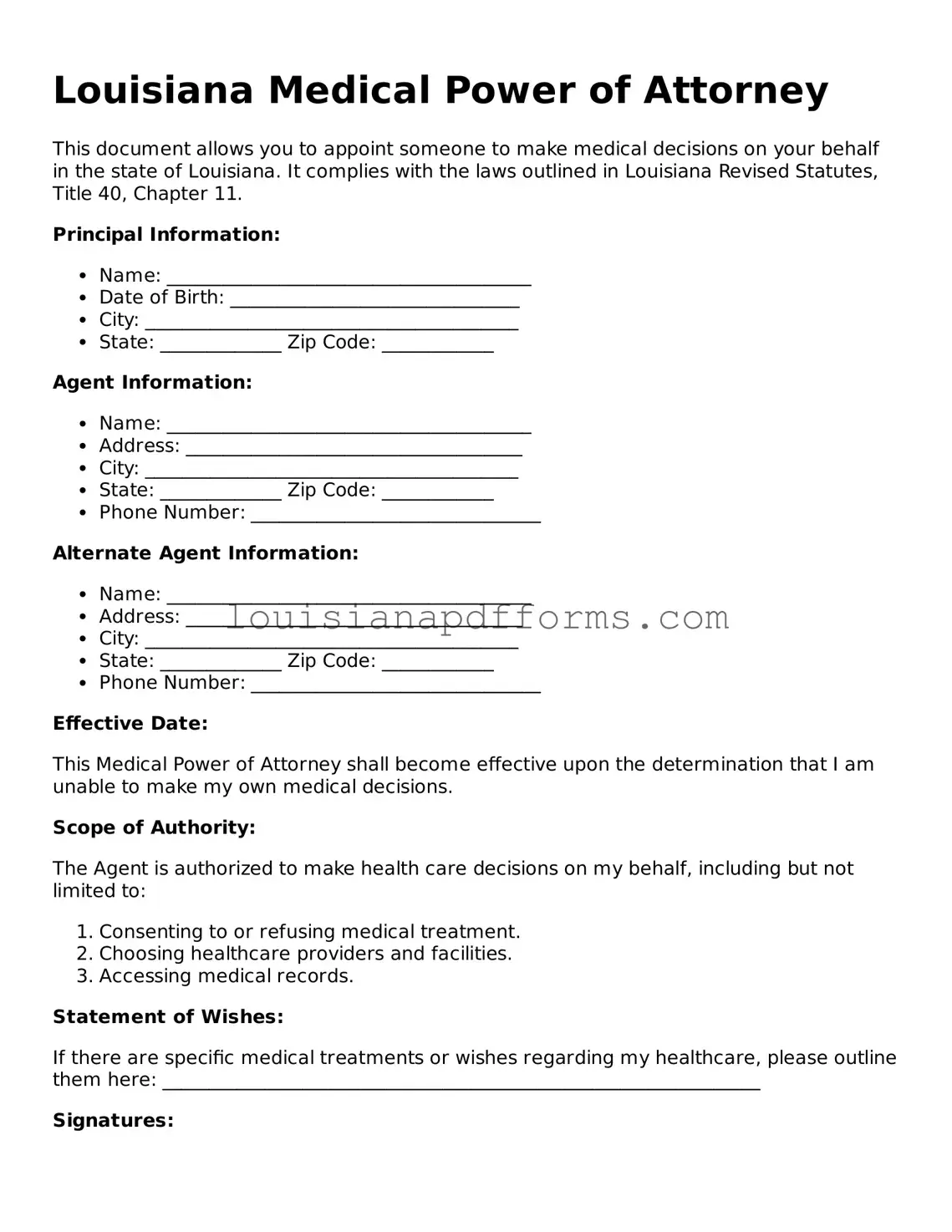What is a Louisiana Medical Power of Attorney?
A Louisiana Medical Power of Attorney is a legal document that allows an individual, known as the principal, to designate another person, referred to as the agent, to make healthcare decisions on their behalf. This document is particularly important in situations where the principal is unable to communicate their wishes due to illness or incapacity.
Who can be designated as an agent?
In Louisiana, the agent must be at least 18 years old and capable of making informed healthcare decisions. It is advisable to choose someone trustworthy, such as a family member or close friend, who understands the principal's values and wishes regarding medical treatment.
What decisions can the agent make?
The agent can make a wide range of healthcare decisions, including but not limited to:
-
Consent to or refuse medical treatments.
-
Make decisions about surgeries or procedures.
-
Choose healthcare providers and facilities.
-
Access medical records and information.
The agent's authority can be as broad or as limited as specified in the document.
How is a Medical Power of Attorney created in Louisiana?
To create a Medical Power of Attorney in Louisiana, the principal must complete a written document that clearly states their wishes. This document must be signed by the principal in the presence of a notary public and two witnesses, who cannot be the designated agent or related to the principal by blood or marriage.
Can a Medical Power of Attorney be revoked?
Yes, a Medical Power of Attorney can be revoked at any time by the principal, as long as they are mentally competent. Revocation can be done verbally or in writing. It is recommended to inform the agent and any healthcare providers of the revocation to avoid confusion.
What happens if I do not have a Medical Power of Attorney?
If a person does not have a Medical Power of Attorney and becomes incapacitated, medical decisions may be made by family members or guardians. This can lead to disputes or decisions that may not align with the individual’s preferences. Having a Medical Power of Attorney ensures that the principal’s wishes are respected.
Is a Medical Power of Attorney the same as a Living Will?
No, a Medical Power of Attorney and a Living Will serve different purposes. A Medical Power of Attorney appoints someone to make decisions on behalf of the principal, while a Living Will outlines specific wishes regarding end-of-life care and treatments in the event of terminal illness or incapacity.
How can I ensure my Medical Power of Attorney is valid?
To ensure the validity of a Medical Power of Attorney in Louisiana, the document must be properly executed according to state laws. This includes having the principal's signature notarized and witnessed. It is also advisable to keep copies of the document in accessible locations and provide copies to the agent and healthcare providers.
Where should I store my Medical Power of Attorney?
It is important to store the Medical Power of Attorney in a safe but accessible location. Consider keeping it in a secure place at home, such as a safe or file cabinet, and inform the agent and trusted family members of its location. Additionally, providing copies to healthcare providers ensures that they have access to the document when needed.

